Prefer listening? Click play to hear this blog read aloud.
Navigating menopause presents unique challenges for skin health. As oestrogen levels decline, the skin’s ability to retain moisture is often compromised, leading to dryness and increased fragility. When combined with the often cold British climate, managing dry skin during this time can feel overwhelming. But it doesn’t have to be. Here’s your guide to nurturing and hydrating your skin with simple, effective, and accessible steps, designed to be both straightforward and actionable.
1. Hydrate from the Inside Out

Staying well-hydrated maintains moisture levels in the skin and aids overall cell health. While skincare products work on the surface, internal hydration provides the foundation for skin resilience.
Action Steps:
- Drink water regularly, aiming for at least 1.5 to 2 litres daily. Herbal teas can be a warming, comforting way to hydrate on colder days.
- Eat water-rich foods like cucumber, watermelon, and oranges as part of your meals. Many of these foods also contain electrolytes like potassium, which help maintain fluid balance and support healthy skin function.
- Limit alcohol and caffeine, as both can be dehydrating and can strip your skin of essential moisture. Consider occasionally swapping alcoholic drinks with hydrating alternatives such as fresh ginger and mint infused water.
2. Embrace a Gentle Cleansing Routine
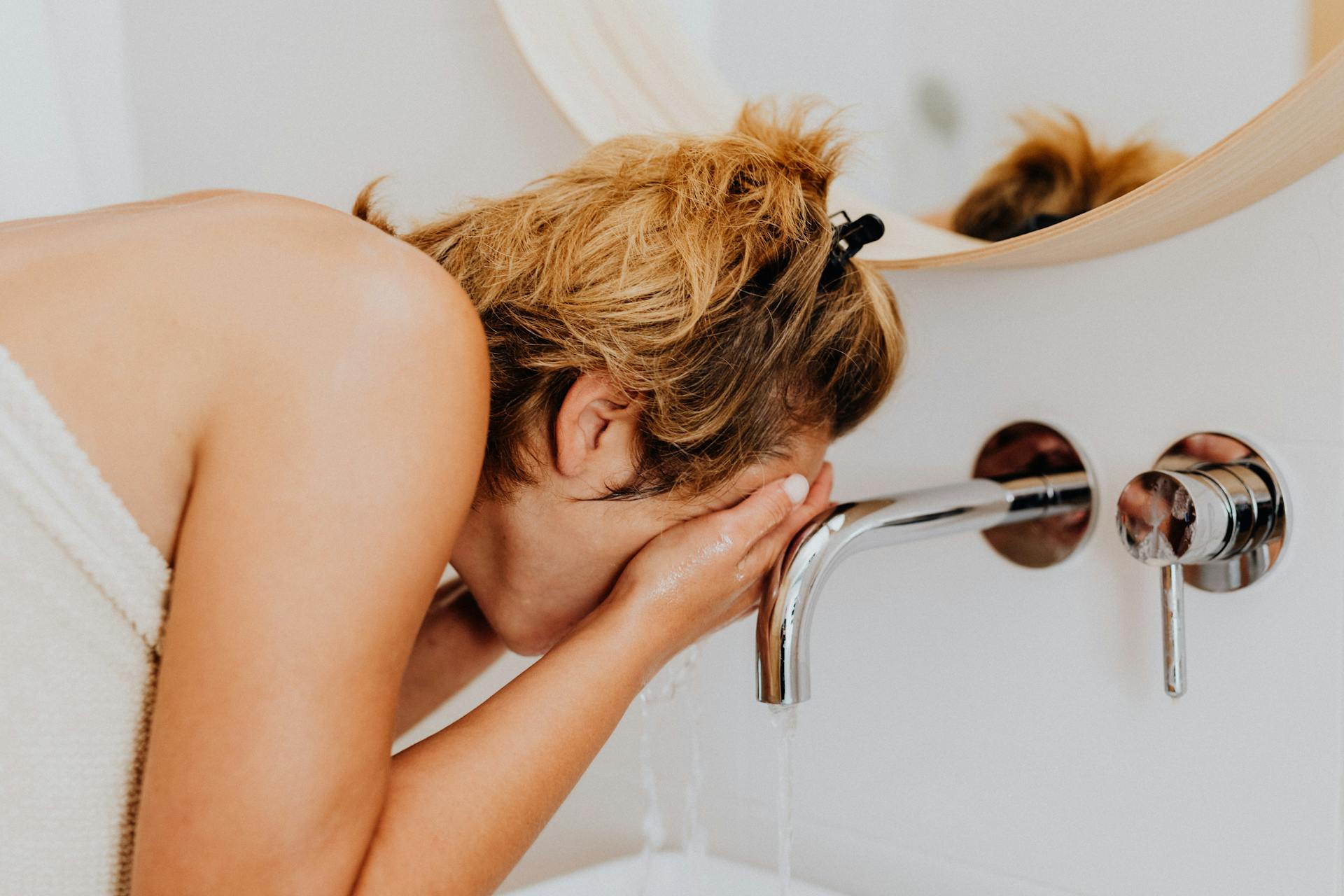
Harsh cleansers can strip your skin of natural oils, leading to more dryness and irritation.
Action Steps:
- Switch to a mild, fragrance-free cleanser that avoids sulphates and alcohol. Look for hydrating ingredients like glycerine, which helps retain moisture.
- Limit cleansing to twice daily. Over-washing can disrupt the skin barrier, so a gentle morning and evening cleanse is often sufficient.
- Use lukewarm water instead of hot, as hot water can further dry out the skin by stripping its natural oils.
3. Moisturise to Seal in Hydration
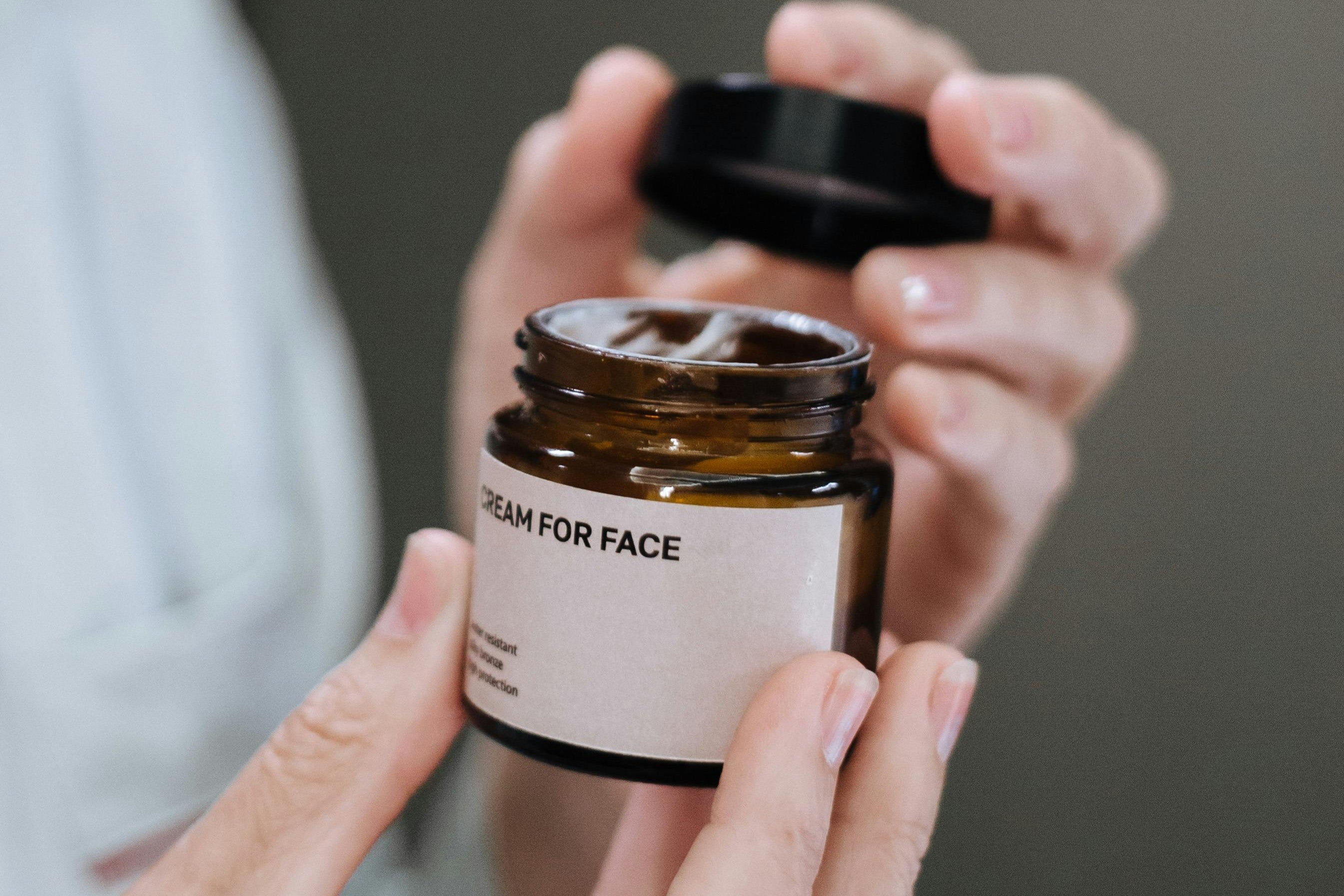
Regular moisturisation is essential for retaining moisture and strengthening the skin’s barrier, particularly during the winter months when the cold air and indoor heating can increase dryness.
Action Steps:
- Apply moisturiser immediately after cleansing. This helps lock in water before it evaporates. Choose a rich, fragrance-free formula with ingredients like hyaluronic acid or ceramides, which bind and retain moisture.
- Consider layering with a facial oil if your skin is very dry. Oils like jojoba or rosehip oil can add an extra layer of hydration, sealing in moisture and nourishing the skin.
- For daytime, always opt for a moisturiser with SPF, even in winter. The sun’s UV rays can penetrate through clouds, so shielding your skin from UV damage is essential for maintaining its health and integrity.
4. Be Mindful of the Climate

The UK’s weather varies widely, with cold winters that can sap moisture from your skin. Adjusting your skincare routine seasonally can help you keep skin balanced.
Action Steps:
- Use a humidifier indoors, especially in winter, to add moisture back into the air. This can prevent skin from feeling tight and flaky.
- Wear protective clothing, like gloves and scarves, to shield exposed skin from cold winds.
- In winter, switch to a heavier moisturiser to create a protective barrier against harsh weather conditions. During warmer months, a lighter formula may be all you need to keep your skin hydrated without feeling greasy.
5. Incorporate Omega-3s and Healthy Fats
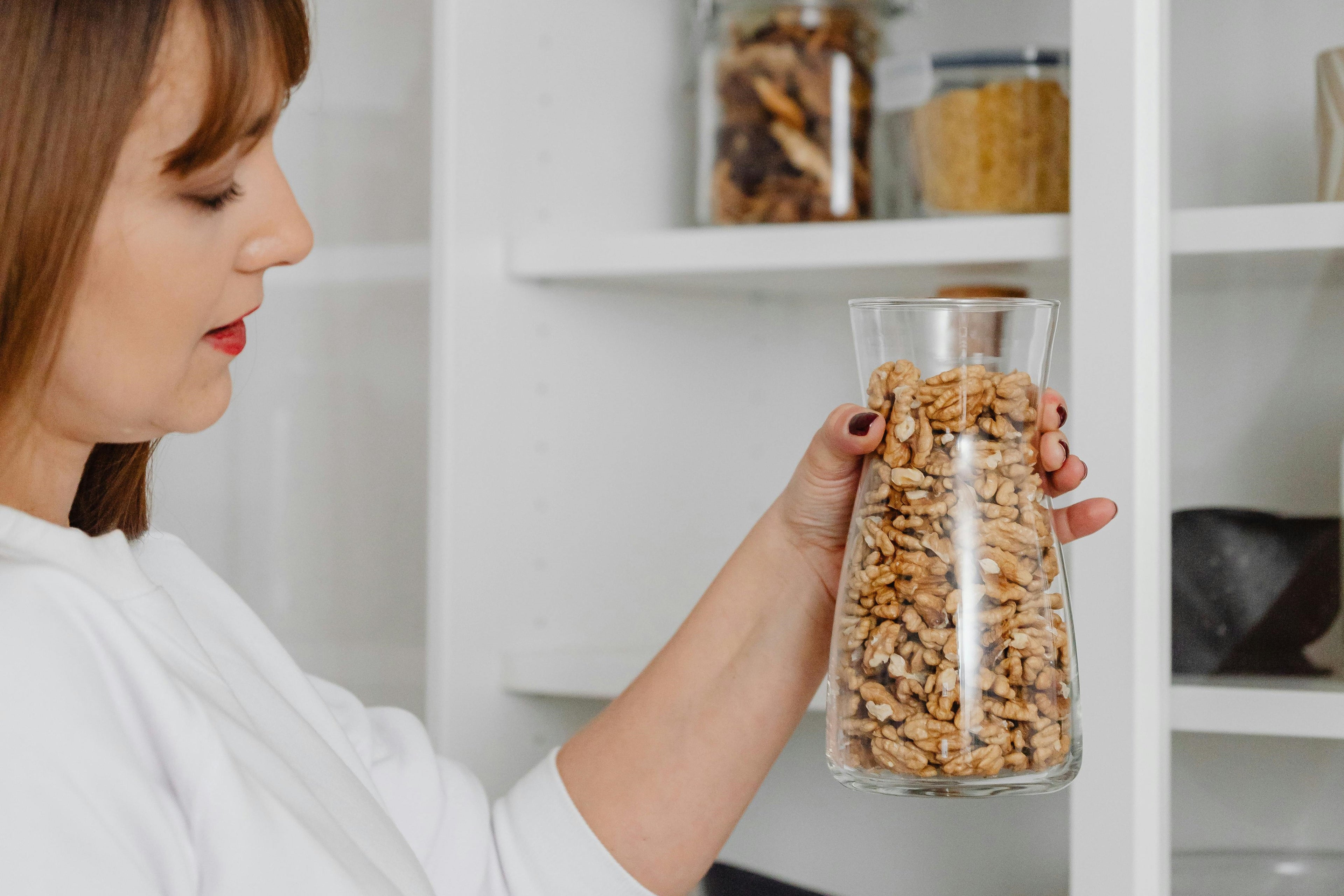
Omega-3 fatty acids strengthen the skin’s lipid barrier, which is essential for retaining moisture. They also reduce inflammation, which can soothe dry, sensitive skin.
Action Steps:
- Eat fatty fish like salmon or sardines, which are rich in omega-3s and widely available in the UK. Plant-based options include chia seeds and flaxseeds.
- Add nuts and avocados to your diet for healthy fats that support skin structure and elasticity.
- Consider an omega-3 supplement, especially if you don’t regularly eat fish. Consult with a healthcare provider before adding supplements to your regimen.
6. Avoid Over-Exfoliating
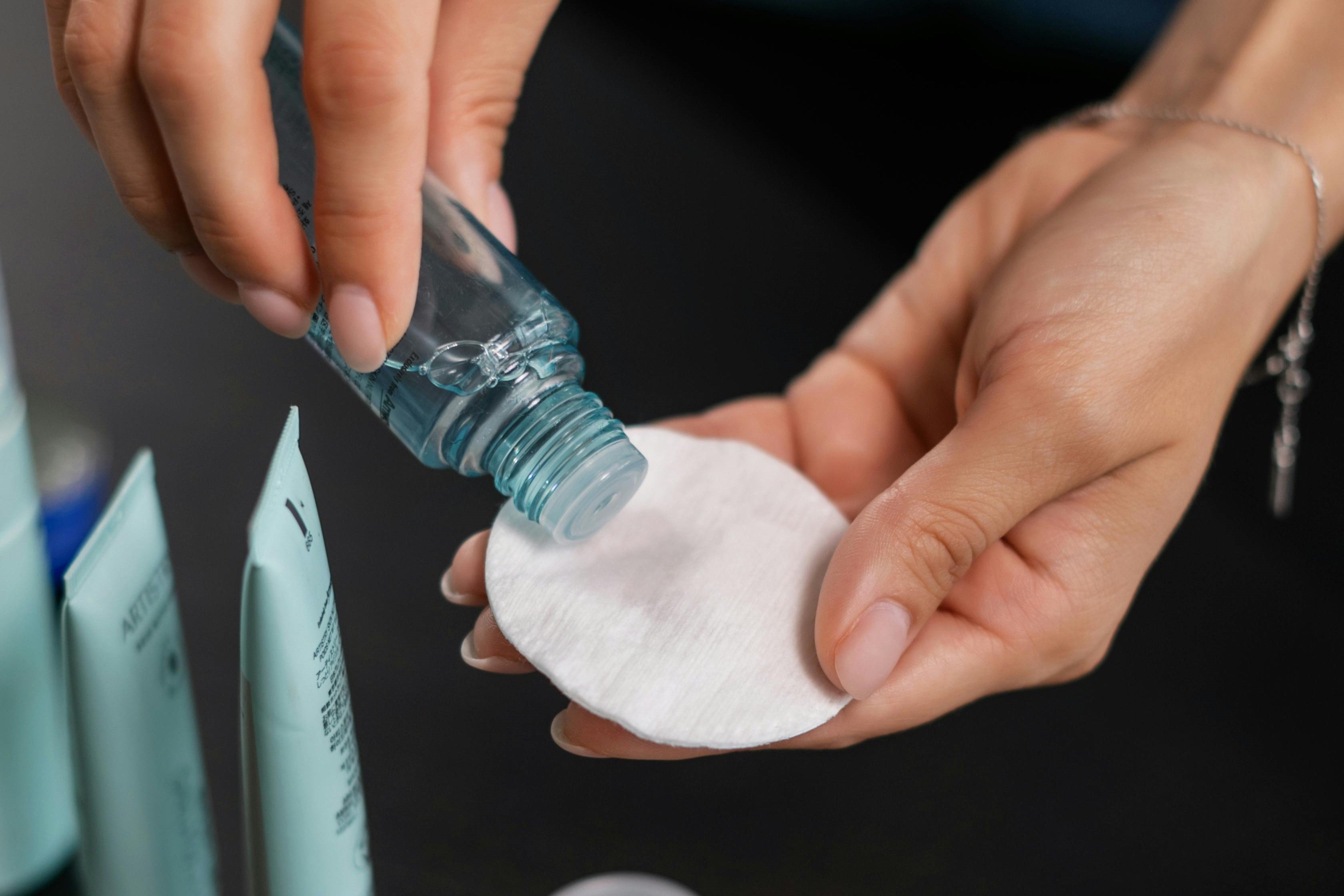
While exfoliating can brighten skin, too much can damage the skin barrier, leading to further dryness and irritation.
Action Steps:
- Limit exfoliation to once a week, using a gentle product with lactic acid or fruit enzymes. These options are often kinder to sensitive skin than harsher physical scrubs.
- Avoid mechanical exfoliants (scrubs with grains or particles) as they can create micro-tears in the skin, increasing sensitivity and dryness.
7. Supplement Wisely for Skin Health
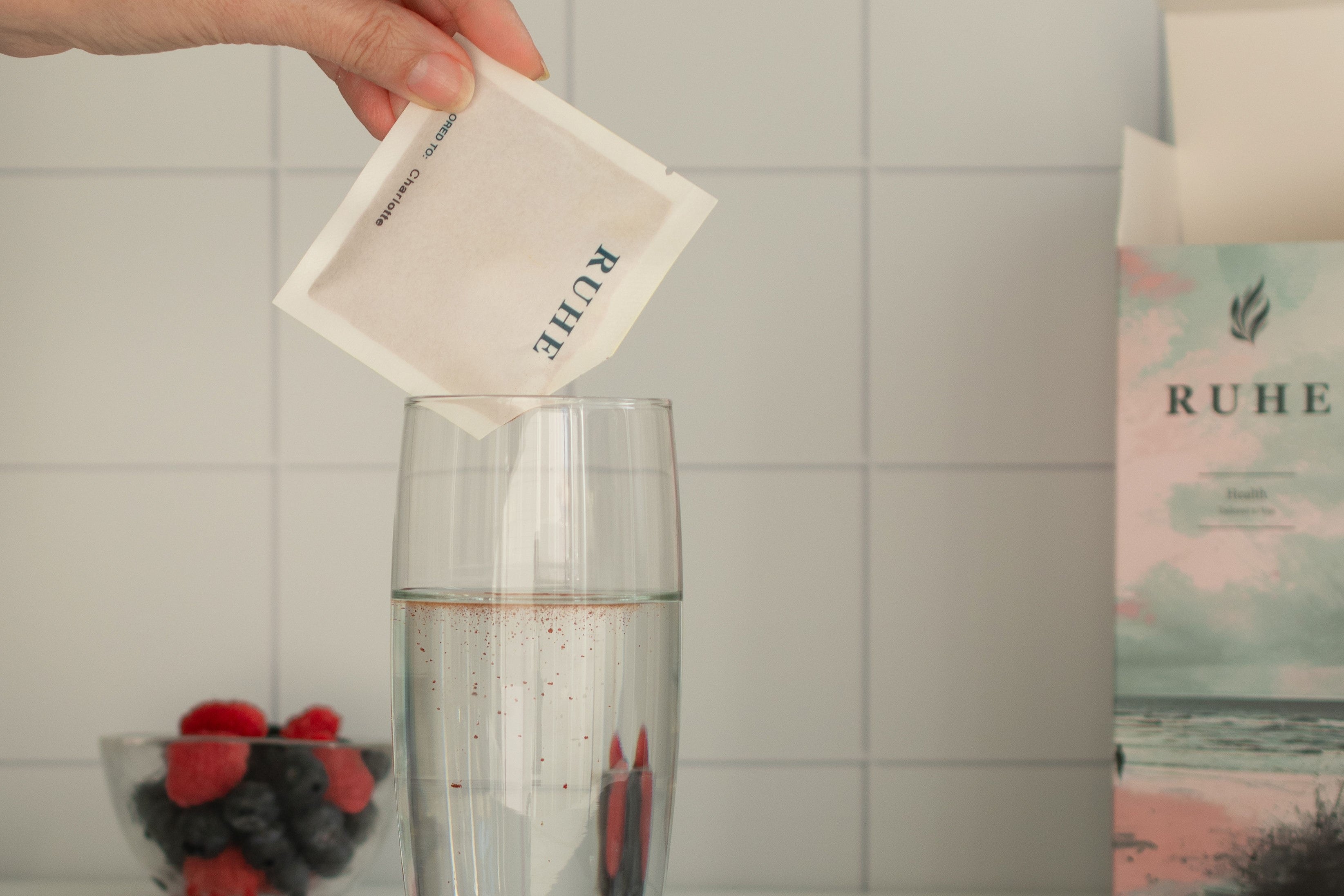
Certain supplements can enhance the skin’s moisture retention and barrier function, providing additional support for menopausal dry skin.
- Hyaluronic Acid: Taken as a supplement, hyaluronic acid helps skin retain moisture from the inside out. Clinical doses range from 120 to 240 mg daily.
- Ceramides: Found naturally in the skin, ceramides can be taken as a supplement to strengthen the barrier and improve hydration. Studies suggest around 70 mg daily can offer visible improvements in skin moisture.
- Omega-3s: As mentioned, these essential fatty acids not only benefit heart and brain health but also play a significant role in skin hydration. A daily intake of 1,000 to 2,000 mg of EPA and DHA is generally recommended for skin benefits.
- Vitamin E: Known for its antioxidant properties, Vitamin E helps protect the skin from oxidative stress and environmental damage. It also plays a crucial role in supporting skin hydration and healing. A daily dose of 15 mg can support healthy, hydrated skin.
- Complete Supplements: Supplements that target skin dryness can be even more effective when they combine multiple ingredients. With RUHE, you can personalise your supplement to specifically address skin dryness through a quiz, and ingredients like above will be included for you. Designed specifically for menopausal women, RUHE allows you to target multiple of your personal needs and goals simultaneously. This tailored approach simplifies supplementation, offering both precise and comprehensive care to meet your unique needs.
Final Thoughts
The journey through menopausal skin changes requires patience and care. As your skin adjusts, your self-care routine can evolve into a supportive ritual, helping you feel more at ease. Every small adjustment nurtures not just your skin but your overall health, reinforcing the power of consistency and self-care. Be gentle with yourself, celebrate your body’s resilience, and know that each mindful step contributes to both your skin’s hydration and its overall health.

